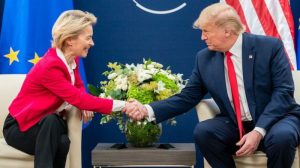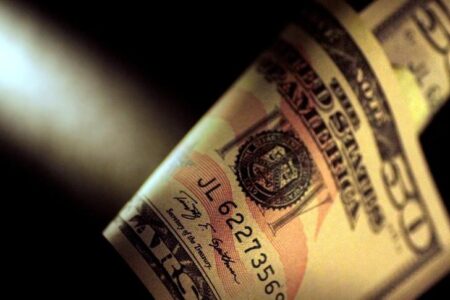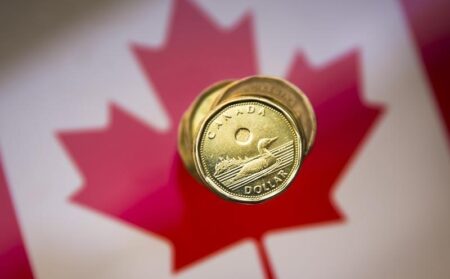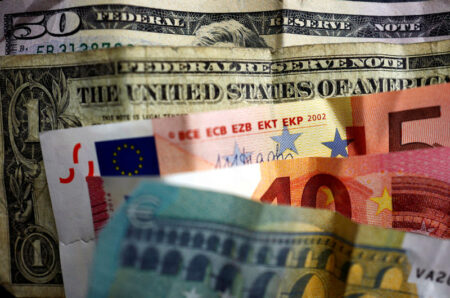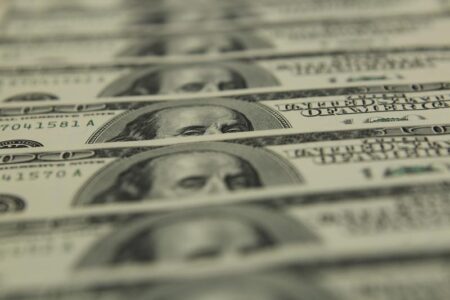By Harry Robertson and Tom Westbrook
LONDON/SINGAPORE (Reuters) -The euro strengthened as the dollar slid on Tuesday in reaction to a sharp drop in Treasury yields on the back of further dovish comments by Federal Reserve officials, as well as the prospect of stimulus from China.
The slid and Treasury yields edged lower after Atlanta Fed President Raphael Bostic, in the latest comments this week by Fed speakers, said the U.S. central bank does not need to increase interest rates any further.
Bostic told the American Bankers Association that Fed policy is sufficiently restrictive and that he sees no recession ahead even as the Fed’s rate hikes slow the economy and bring down inflation.
“The focus on term yields and term premiums is going be a key issue for the U.S. dollar because it does suggest that maybe the Fed doesn’t have to go any more,” said Shaun Osborne, chief FX strategist at Scotiabank in Toronto. “These are all things that are going to check the dollar’s advance, whether we see any sort of significant decline at this point, it’s hard to say given where yields are,” he said.
The euro rose 0.25% against the dollar to $1.0595, while the dollar index, a measure of the U.S. currency against six others, slid about 0.05% to 105.90, below last week’s 11-month high of 107.34, after earlier touching the lowest level this month.
Traders are waiting for the release on Wednesday of minutes from the Fed’s last policy move as well as key U.S. inflation data on Thursday. Investors are keeping a close eye on the conflict between Israel and the Palestinian Islamist group Hamas, though the initial safe-haven purchase of the dollar has stopped.
Bloomberg reported that China is weighing the issuance of at least 1 trillion yuan ($137.1 billion) of additional sovereign debt for spending to boost its struggling economy, a move analysts said helped currencies such as the euro, which are seen as more exposed to global growth.
U.S. bond yields dropped sharply on Tuesday when trading reopened following the Columbus Day holiday. The fall in global borrowing costs helped boost Asian and European stocks.
“With Treasury yields significantly dropping this morning during cash trading and that translating into a more constructive session for European equities, it seems as if FX traders are more comfortable in rotating out of the dollar,” said Simon Harvey, head of FX analysis at Monex Europe.
“This has likely been supported by news that China is set to increase its fiscal spending, although we think this is merely improving sentiment at the moment as the details are fairly opaque.”
The yen weakened 0.27% versus the greenback to 148.89 per dollar. Japan’s currency bounced after the Kyodo news agency reported that the Bank of Japan is considering raising its forecast for core consumer inflation this year, but then gave up its gains.
Analysts said the drop in U.S. yields was driven by comments from two Fed officials on Monday who said rising long-term yields might negate the need for further hikes, and by traders seeking out safe-haven assets after Hamas’ assault on Israel.
The yield on the 10-year U.S. Treasury, which moves inversely to the price, was down 11.3 basis points at 4.6695%. It hit its highest since 2007 last week at 4.887%.
Israel’s shekel traded at 3.95855 to the dollar, just off an almost eight-year low hit on Monday, after the central bank pledged $30 billion to stem the sell-off in the currency.
“They’re firmly engaged here, and I think they want to stop it from trading at that 4 level,” said Chris Turner, head of markets at ING.
Israeli officials said on Tuesday that Israel had re-established control over the Gaza border as it pounded the enclave with air strikes.
The Swiss franc, a traditional safe-haven currency, was at 0.9061 to the dollar, which weakened about 0.07%. Britain’s pound was up 0.14% at $1.2254.
Besides Bostic, Fed officials Christopher Waller, Neel Kashkari and Mary Daly were due to speak on Tuesday.
Read the full article here

